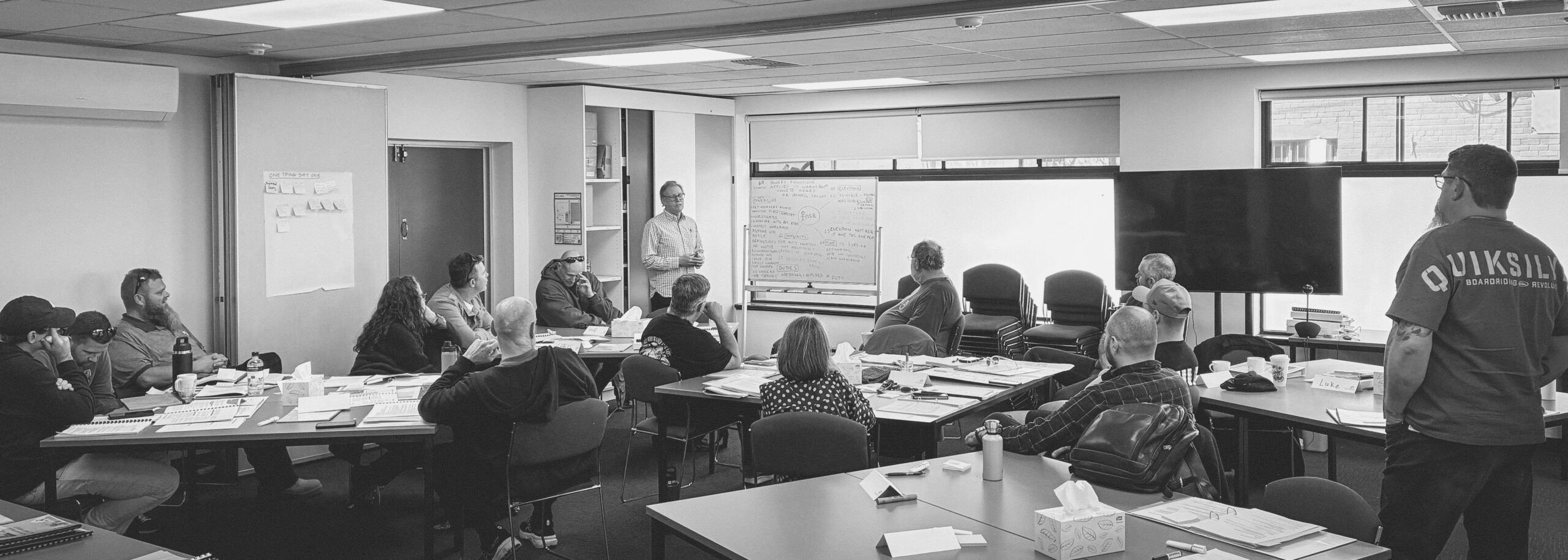employer/Supervisor Training Authorisation Form
SA Unions Training Centre HSR Enrolment Process
Enrolment of Individual Participants
Enrolment into training programmes will be always conducted in an ethical and responsible manner, ensuring fairness and compliance with the Equal Opportunity Act 1984, Disability Discrimination Act 1992, Racial Discrimination Act 1975, and Sex Discrimination Act 1984 legislation. Participant enrolments are subject to availability of places on the training program, based on the maximum number (20) of participants SafeWork SA and Comcare allow. The training venue will also be considered when deciding how many participants can be enrolled in any course.
SA Unions will consider the number of participants that can be accommodated under the circumstances e.g., safety, capacity of training venue, type of course and learning structures within the course. If a training course is fully booked, participants will either be placed on a “reserve” list or offered a place on another date. Participants on the “reserve” list of a fully booked course are given priority should a place become available. Enrolments will be considered tentative until an enrolment form has been received. Should participant numbers reach maximum, and another person wishes to enroll on a course where there is a tentative enrolment, SA Unions will contact the tentative booking and request that an enrolment form be received by cob the following workday, to confirm enrolment.

Our programs focus on real-world solutions, empowering participants to identify risks, improve communication, and promote a culture of safety. With this training, workplaces can benefit from stronger safety practices, reduced incidents, and improved overall performance.
Health and Safety Representatives (HSRs) are elected by their workmates to play a key role in promoting and maintaining safety in the workplace.
Health and Safety Representatives (HSRs) are assets to employers for several key reasons:
1. HSR’s are Job Experts
HSRs often hold job-specific expertise that external inspectors and regulators may not have the same degree of familiarity and experience with.
2. Early Hazard Identification
HSRs help identify potential risks before they lead to incidents. By having a trained representative focused on safety, employers can address issues promptly, reducing the chance of catastrophic and/or costly accidents or downtime.
3. Better Consultation
HSRs provide a direct line of communication between workers and management. This helps employers gain insights into the day-to-day safety concerns of workers, fostering a culture of trust and collaboration.
4. Improved Compliance
HSRs can help ensure that safety regulations and standards are met, reducing the risk of future legal issues or penalties for non-compliance. They can assist you in keeping track of changing laws and best practices, assisting your business or undertaking in understanding best WHS practice and meeting your WHS duties.
5. Workplace Productivity
Preventing incidents can lead to significant savings for employers, both in terms of avoiding workers’ compensation claims and reducing operational disruptions. HSRs contribute to long-term financial savings through proactive safety measures.
Employers have a duty to ensure the health and safety of workers to the highest extent possible. A crucial part of achieving this is consultation—working closely with HSRs to identify hazards, assess the risks that they may pose, discuss potential solutions, and ensure safety protocols are effective.
HSRs are an invaluable asset, giving workers a voice to improve workplace safety. Unions also play a vital role in workplace safety by supporting HSRs and workers and promoting a collaborative approach to managing health and safety.
It’s important to remember that discrimination, coercion, and misrepresentation of workplace safety concerns are serious offences under the law.
By working together with your HSRs and unions, and following best practices in consultation, employers can create safer and healthier workplaces for everyone.
Have a question about a training course or an invoice?
Get in touch: training@saunions.org
Understanding Commonwealth & State Jurisdiction
Nationally, Work Health Laws are harmonised, which means that when recommendations are accepted to the model law (by 2/3rds majority of State & Federal Ministers with responsibility for WHS), then these will be introduced into the equivalent state/commonwealth laws.
There are different jurisdictions for the regulatory operation of our work health safety system. In South Australia, workplaces under state jurisdiction (the vast majority) are regulated by SafeWork SA, and workplaces under commonwealth jurisdiction are regulated by Comcare.
Commonwealth jurisdiction workplaces are (in most cases) Federal Government employees regardless of state or territory, and a small number of employers with national implications (such as Australia Post, Linfox, ASC).
If you are unsure if your organisation falls under Commonwealth jurisdiction, you can contact Comcare for advice here.
Commonwealth HSR registration & Training Entitlements
It is an employer’s obligation to register a HSR as soon as possible following their election.
For commonwealth HSRS, PCBUs are required to:
- Have an up-to-date list of HSRs and Deputy HSRs (if any) for each work group and display this list in the workplace
- Submit this list and any changes to Comcare—email the list and updates to hsr@comcare.gov.au
Employers must allow HSRs to attend HSR training (up to the prescribed training entitlement) within 3 months of making a request.
Training entitlements during a 3-year term of office are:
- Initial training – 5 days
- Yearly Refresher – 1 day
- If HSRs are re‑elected for another 3‑year term, they will be entitled to 1-day each year.
State HSR Registration & Training Entitlements
(State) HSR Registration
It is an employer’s obligation to register a HSR through the SafeWorkSA portal as soon as possible following their election.
Employers must allow HSRs to attend HSR training (up to the prescribed training entitlement) within 3 months of making a request.
Training entitlements during a 3-year term of office are:
- First year – 5 days
- Second year – 3 days
- Third year – 2 days.